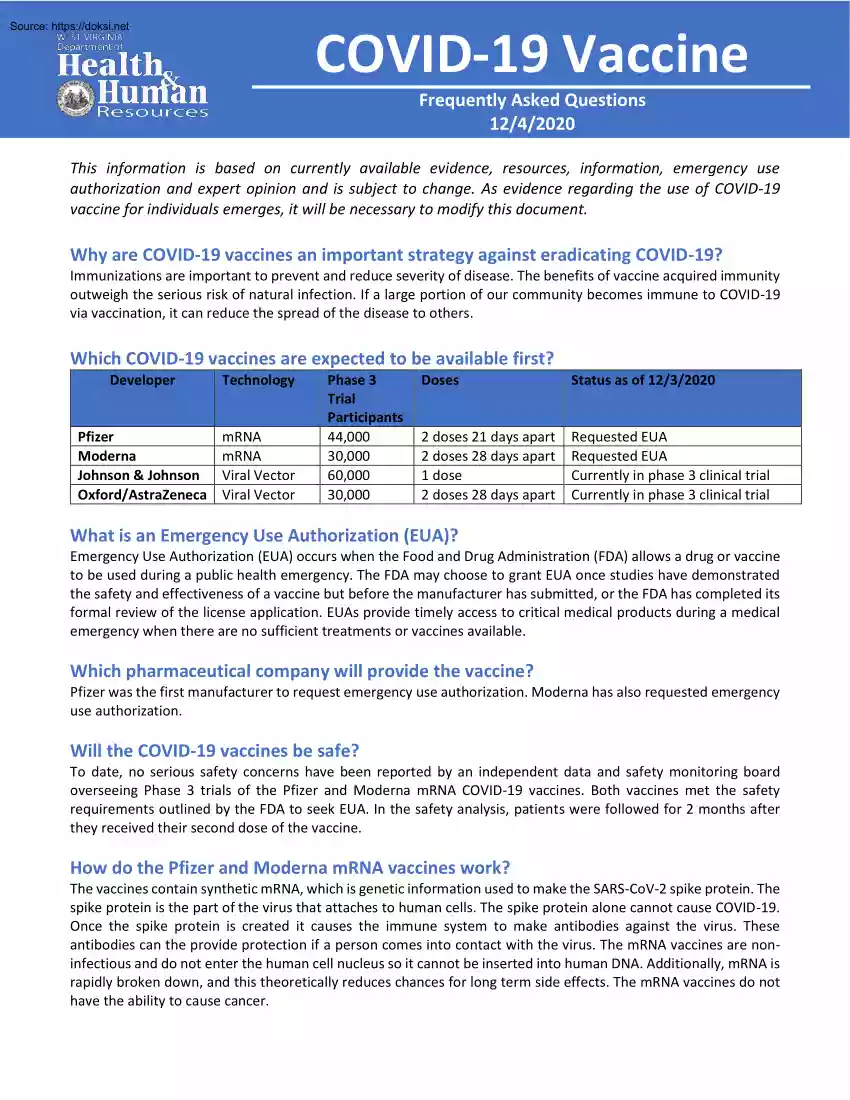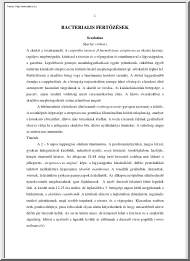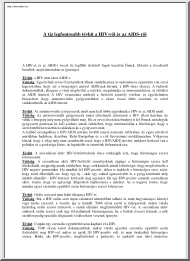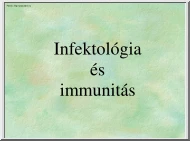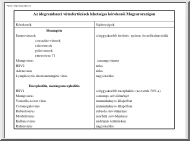Datasheet
Year, pagecount:2021, 4 page(s)
Language:English
Downloads:3
Uploaded:June 03, 2021
Size:810 KB
Institution:
-
Comments:
West Virginia Department of Health and Human Resources
Attachment:-
Download in PDF:Please log in!
Comments
No comments yet. You can be the first!Most popular documents in this category
Content extract
days apart 1 dose 2 doses 28 days apart Requested EUA Requested EUA Currently in phase 3 clinical trial Currently in phase 3 clinical trial What is an Emergency Use Authorization (EUA)? Emergency Use Authorization (EUA) occurs when the Food and Drug Administration (FDA) allows a drug or vaccine to be used during a public health emergency. The FDA may choose to grant EUA once studies have demonstrated the safety and effectiveness of a vaccine but before the manufacturer has submitted, or the FDA has completed its formal review of the license application. EUAs provide timely access to critical medical products during a medical emergency when there are no sufficient treatments or vaccines available. Which pharmaceutical company will provide the vaccine? Pfizer was the first manufacturer to request emergency use authorization. Moderna has also requested emergency use authorization. Will the COVID-19 vaccines be safe? To date, no serious safety concerns have been reported by an
independent data and safety monitoring board overseeing Phase 3 trials of the Pfizer and Moderna mRNA COVID-19 vaccines. Both vaccines met the safety requirements outlined by the FDA to seek EUA. In the safety analysis, patients were followed for 2 months after they received their second dose of the vaccine. How do the Pfizer and Moderna mRNA vaccines work? The vaccines contain synthetic mRNA, which is genetic information used to make the SARS-CoV-2 spike protein. The spike protein is the part of the virus that attaches to human cells. The spike protein alone cannot cause COVID-19 Once the spike protein is created it causes the immune system to make antibodies against the virus. These antibodies can the provide protection if a person comes into contact with the virus. The mRNA vaccines are noninfectious and do not enter the human cell nucleus so it cannot be inserted into human DNA Additionally, mRNA is rapidly broken down, and this theoretically reduces chances for long term side
effects. The mRNA vaccines do not have the ability to cause cancer. What side effects will the vaccine have? Are there going to be long term side effects? In Phase 3 clinical trials, the most common side effects reported were as follows: Vaccine Pfizer Moderna Side effect Percent reported Side effect Percent reported Fatigue 3.8% Fatigue 9.7% Headache 2% Muscle pain 8.9% Joint pain 5.2% Headache 4.5% Pain 4.1% Side effects have been reported to be short lived and happen within the first few days of receiving the vaccine. Side effect occurrence is typically higher after the second dose of vaccine. Historically, long term side effects from vaccines has been rare. If you develop COVID-19 symptoms after getting the vaccine should you quarantine? Yes. It typically takes a few weeks for the body to build immunity after vaccination That means it is possible a person could be infected with the virus that causes COVID-19 just before or just after vaccination and get sick. This is because
the vaccine has not had enough time to provide protection. If you have COVID-19 virus symptoms after getting the vaccine or at any time, you should contact your health care provider and consider getting tested for COVID-19. What about an exposure between doses, do you need to quarantine? Yes. Standard quarantine as advised by state and local health officials How will side effects from the vaccines be treated? Side effects from vaccines are typically short lived. If you are concerned about your health after getting vaccinated, talk with your health care provider. They will determine the appropriate treatment You or your doctor can choose to report the side effect to the Vaccine Adverse Event Reporting System (VAERS). Should premedication be given prior to vaccination? Currently, there are no recommendations to take medication prior to receiving a vaccine. Can I get COVID-19 from a vaccine? No. The vaccines do not contain the full live SARS-CoV-2 virus and therefore cannot cause
COVID-19 The first vaccines that will be available will either contain mRNA (non-infectious genetic material), viral vectors, (modified versions of live viruses), or protein subunits (parts of viral proteins) which cannot cause infection. How effective will the vaccines be? In Phase 3 trials, the Pfizer vaccine showed a 95% efficacy rate 7 days after the second dose. The vaccine was 94% effective in adults >65 years old. The Moderna vaccine showed a 94% efficacy rate 14 days after the second dose These results were consistent across gender, age, race and ethnicity. How long will immunity last after I get vaccinated? Will I need to be vaccinated every year? The length of immunity following vaccination is not yet known for COVID-19. Given the novel nature of this virus and vaccine development, long term data is not yet available to guide future vaccine protocols. Can I take the vaccine if I have already had COVID-19 and recovered? How long after can I take it? It is currently
unknown how long natural immunity lasts after recovering from COVID-19. Early studies show that it is not long lasting, and cases of reinfection have been reported. The Pfizer trial did include individuals who previously had COVID-19 and recovered but data from that group is still pending. The Advisory Committee on Immunization Practices (ACIP) will be making recommendations on which individuals should be vaccinated. Can I take the vaccine if I have had convalescent plasma or monoclonal antibody? The degree of immunity attained from receiving convalescent plasma or monoclonal antibodies is currently unknown. More studies are needed to understand this ACIP will be making recommendations on which individuals should be vaccinated. How is the COVID-19 vaccine administered? The COVID-19 vaccines are IM or intramuscular injections. Do I still need to wear a mask after I take the vaccine? Yes. Wearing a mask and practicing social distancing is still important after receiving the vaccine
There will be limited doses available initially, and because people will be vaccinated in waves, it will take time to vaccinate enough of the population to stop the spread of COVID-19. Additionally, it is not known how long immunity will last Furthermore, infection after a receiving a vaccine may still be possible, although it is likely that it would be less severe, such as a mild or asymptomatic infection. Others can still be infected in this scenario, necessitating the continued use of masks. If I take the vaccine will I expose my family to COVID-19? Information currently available about the Pfizer and Moderna vaccines that have requested FDA authorization would not affect a person that is a close contact of a person taking the vaccine. It typically takes a few weeks for the body to build immunity after vaccination. That means it is possible a person could be infected with the virus that causes COVID-19 just before or just after vaccination and get sick. This is because the vaccine
has not had enough time to provide protection. If you have COVID-19 symptoms after getting the vaccine or at any time, you should contact your health care provider and consider getting tested for COVID-19. If you have had the virus do you still need the vaccine? Due to the severe health risks associated with COVID-19 and the fact that re-infection is possible, people may be advised to get a vaccine even if they have been sick with COVID-19 before. How many people need to get the vaccine for “herd immunity”? The number or percentage of population that need to be vaccinated in order to reach “herd immunity” is not yet known. This number is impacted by the pathogen itself (in this case a novel virus with still unknown aspects), how efficacious these new vaccines will be (preliminary data shows both Moderna and Pfizer to be >90%), and how long immunity would last with these vaccines. This is an unknown at the moment as we do not know how long immunity lasts either from
vaccination or from natural infection. When will I get the vaccine? The Pfizer and Moderna vaccines are under review by the FDA for EUA. It is anticipated that emergency use authorization to occur by mid-December 2020 with the first shipments of vaccine to states at that point. However, supply will be limited at first and will likely be given to high risk exposure groups initially. Your timeline for vaccination depends on recommendations that will be provided by the state and the ACIP as well as how much supply of vaccine is available. Are there any contraindications (conditions or factors that would be a reason to withhold vaccination due to harm) to receiving the vaccine? Currently there is no information on contraindications to receiving the vaccine. ACIP will be making recommendations on who should or should not receive the vaccines. How long after the flu shot do I have to wait to take the COVID-19 vaccine? Exact recommendations are unknown at this time. ACIP will be making
recommendations on how long after the flu shot one should wait before they receive the COVID-19 vaccine. Why is vaccine development happening so fast? The vaccine process is happening faster because vaccine research and development, clinical trials, manufacturing, and plans for distribution are occurring at the same time. This method removes delays that occur when these processes are carried out one after the other. Steps to ensure safety are not being eliminated For 2 dose vaccines, what happens if I only receive one dose of the vaccine and not both? It is recommended to receive both doses of the vaccine. If only one vaccine is received, immunity cannot be guaranteed. How will the second dose of the vaccine be ensured if I do get the first dose? The CDC, federal agencies and state public health departments are using a tool called the Vaccine Administration Management System (VAMS). This is an online tool that will allow clinicians to set up customized vaccine schedules, and allow
recipients to make vaccination appointment, in addition to get a reminder about returning for a second dose if required. Is taking the COVID-19 vaccine mandatory? The vaccine is not mandatory; however, we do recommend that citizens take the vaccine in order to help prevent disease and reduce disease severity. Getting vaccinated will improve the health and well-being of our communities and get the economy moving again. References Centers for Disease Control and Prevention. Frequently asked questions about vaccination Available from https://wwwcdcgov/coronavirus/2019ncov/vaccines/faqhtml Centers for Disease Control and Prevention. Ensuring the safety of COVID-19 vaccines in the United States Available from https://www.cdcgov/coronavirus/2019-ncov/vaccines/recommendations-processhtml COVID-19 Update: First two vaccines nearing approval demonstrate 95% efficacy. IPD Analytics Nov 2020 Food and Drug Administration. Emergency Use Authorization Available from
https://wwwfdagov/emergency-preparedness-and-response/mcm-legalregulatory-and-policy-framework/emergency-use-authorization Mehta M, Reece R. WVU Medicine COVID-19 Vaccine Frequently Asked Questions Updated 12/1/2020 Pfizer. Pfizer and BioNTech conclude phase 3 study of COVID-19 vaccine candidate meeting all primary efficacy endpoints Available from https://www.pfizercom/news/press-release/press-release-detail/pfizer-and-biontech-conclude-phase-3-study-covid-19-vaccine Vaccine side effects. US Department of Health and Human Services Available from https://wwwvaccinesgov/basics/safety/side effects Vaccine Management System. Deloitte Available from https://www2deloittecom/us/en/pages/public-sector/solutions/vaccine-management-systemhtml Zhang et al. Advances in mRNA vaccine for infectious diseases Front Immunol March 2019; 10:594 Questions and concerns can also be directed to the 24/7, toll-free COVID-19 information hotline: 1-800-887-4304 www.coronaviruswvgov facebook.com/wvdhhr wv
dhhr
